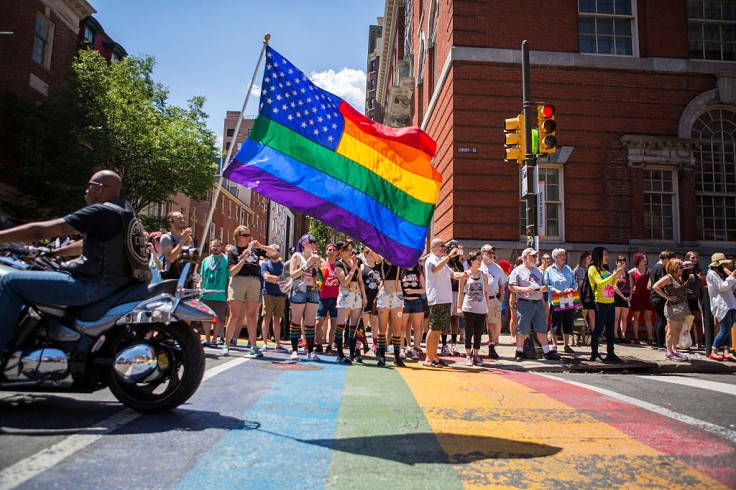
In the midst of Pride Month, celebrations across conservative states in the United States are facing significant changes and challenges as new legislation targeting drag performances comes into effect.
These measures, commonly referred to as anti-drag legislation, have forced organizers to modify their annual Pride events to comply with the restrictions imposed by the laws.
Particularly affected are states like Florida, where LGBTQ Pride events are being altered to adhere to the newly enacted regulations.
LGBTQ's Alarming Shift in Pride Events
The impact of the anti-drag legislation on Pride events is becoming increasingly visible.
According to NBC News, drag performances, a longstanding and cherished art form within the LGBTQ community, are being forced indoors in Naples, Florida, where attendees will no longer witness them in open public spaces.
Similarly, heightened security measures are expected at the annual LGBTQ Pride celebration in Missoula, Montana, due to the presence of these new laws.
Parade-goers in Knoxville, Tennessee, have even been requested to trade their festive posters for protest signs, a reflection of the growing tension surrounding these restrictive measures.
As of now, only Tennessee, Florida, and Montana have officially enacted anti-drag legislation. Tennessee was the first state to pass such a law in March, prohibiting "adult cabaret entertainment" in public spaces or places where minors can witness it.
However, a federal judge temporarily halted the law's implementation, declaring it unconstitutional. Pride event organizers in Tennessee are, nonetheless, preparing to comply with the new regulations.
In Florida, Governor Ron DeSantis signed a measure into law last month, on International Day Against Homophobia, Biphobia, and Transphobia, that restricts drag performances in the presence of minors.
Although the bill does not explicitly mention "drag" or "gender impersonation," DeSantis clarified during the signing ceremony that the intention was to limit drag performances.
Montana's law stands out as it specifically targets "drag story hour" events in schools and libraries that receive public funding, in addition to restricting the art form in front of minors.
The Rise of Anti-Drag Legislation
What was once seen as a distant proposal from a few conservative lawmakers has gained significant momentum in recent months.
Republican legislators in 19 states have proposed measures this year alone, aiming to restrict the venues and audiences for drag performances.
According to the Washington Blade, regrettably, governors in three states, namely Montana, Florida, and Tennessee, have already signed these bills into law.
The legislation primarily targets the involvement of children in drag performances, despite the fact that most drag shows are already held in establishments where entry is restricted to individuals over 21 years of age.
Supporters argue that the laws are necessary to protect children from inappropriate entertainment, while critics contend that they unfairly stigmatize drag performers and portray the art form as overtly sexual.
Read Also: Virginia Community in Shock as High School Graduation Ceremony Descends Into Gunfire, Chaos
Heightened Security Concerns
Forbes reported that as Pride celebrations commence, event organizers in several cities are prioritizing increased security measures due to the heightened tensions surrounding LGBTQ rights.
Some events in Florida have even been canceled in response to concerns over recently passed anti-LGBTQ legislation
With the implementation of these restrictive laws, LGBTQ organizations and event organizers are grappling with heightened security concerns and potential backlash from opponents.
This year's Pride Month takes place against a backdrop of increasing anti-LGBTQ restrictions across the United States.
From prohibitions on gender-affirming care to limitations on LGBTQ topics in classrooms, LGBTQ Americans are facing a wave of challenges.
While polling indicates broad support for LGBTQ rights and opposition to discrimination, issues related to transgender rights remain contentious and have become a focal point in right-wing attacks.
In conservative states where anti-drag legislation has been implemented, LGBTQ Pride events are being altered and reshaped, impacting the vibrant spirit and inclusivity of these celebrations.
As the community continues to navigate these challenges, the fight for equality and acceptance remains steadfast, ensuring that the voices and identities of LGBTQ individuals are heard and celebrated throughout Pride Month and beyond.